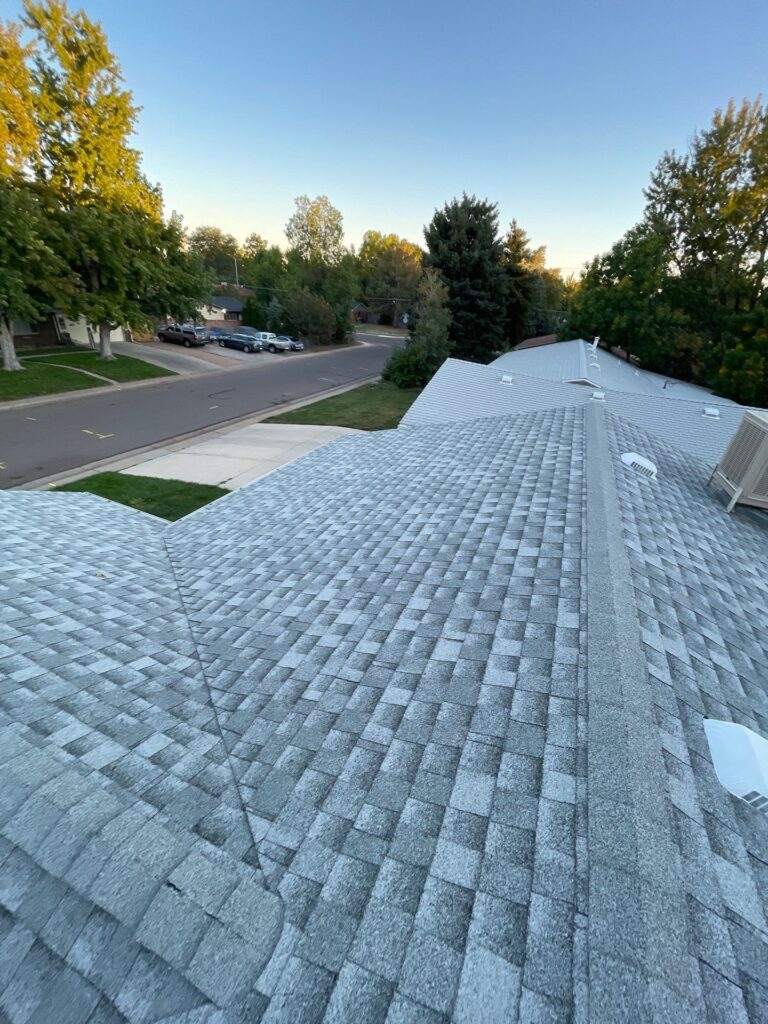As severe weather events such as tornadoes become more frequent in regions not traditionally known for them, selecting a tornado-resistant roof is essential to protect your home. In areas that experience high winds and flying debris, a durable, secure roof can mean the difference between minor damage and catastrophic destruction.
At Tried and True Roofing, we understand the critical importance of installing roofing systems that can withstand tornadoes and other extreme weather conditions. This article will explore the best roofing materials for homes located in tornado-prone regions, focusing on wind and impact resistance, structural integrity, and lightweight design.
Key Features of Tornado-Resistant Roofing
1. Wind Resistance: Secure Roof Attachments
High winds during tornadoes exert immense pressure on roofs, making it crucial for roofing materials to remain securely fastened. Roofing materials such as metal roofs excel in this aspect, providing superior wind resistance. Metal roofs are typically composed of interlocking panels that resist wind uplift, ensuring they remain securely attached to the roof deck even during extreme wind events. These panels are fastened with screws or clips, which are more resistant to loosening under pressure compared to traditional nails.
The wind-resistant nature of metal roofing reduces the risk of displacement, a common issue with other materials like asphalt shingles and clay tiles. With proper installation from skilled roofers in Denver, metal roofing provides a robust solution against the destructive force of tornado winds.
2. Impact Resistance: Protection from Flying Debris
Tornadoes bring not only high winds but also flying debris, which can cause severe damage to a roof. The best roofing material for tornado-prone areas must have high impact resistance to avoid punctures, leaks, and structural damage.
Metal roofing is an ideal choice due to its ability to withstand heavy impacts. Many metal roofs are rated UL 2218 Class 4, the highest possible rating for impact resistance. This rating means that the roofing can endure impacts from large debris or hail without sustaining damage. By investing in a Class 4 metal roof, homeowners significantly reduce the risk of roof damage during a tornado.
3. Lightweight Materials for Enhanced Stability
Roof weight plays a significant role in determining how a roof will hold up under the extreme forces of a tornado. Lightweight roofing materials have lower inertia, making them less likely to be torn off by powerful winds.
Metal roofing, in particular, stands out because of its combination of strength and light weight. It reduces the strain on the overall structure of the home, helping prevent collapse or major damage during a tornado. Additionally, this lightweight design helps maintain the home’s structural integrity, allowing it to better withstand the shearing forces exerted by tornadoes.
4. Durable Roof Design: Reinforced Structures
When choosing roofing materials, structural reinforcement is crucial to ensure long-term resilience. Metal roofs, when installed by experienced roofing professionals like Tried and True Roofing, provide additional protection by utilizing interlocking panels that are tightly secured to the roof deck.
This type of reinforced design helps minimize the “push-pull” forces that develop due to pressure differentials during a tornado. Metal roofing systems can withstand high winds that would otherwise tear apart more conventional roofing options, providing homeowners with peace of mind.
Types of Roofing Suitable for Tornado-Prone Regions
1. Metal Roofing: The Superior Choice
As previously mentioned, metal roofing offers exceptional wind and impact resistance, making it the best roofing option for tornado-prone areas. The lightweight nature, combined with the interlocking panel system, makes metal roofing ideal for protecting homes during severe weather. Additionally, metal roofs are low maintenance, fire-resistant, and environmentally friendly, offering a comprehensive solution to tornado preparedness.
2. Asphalt Shingles: A Common but Less Durable Option
Asphalt shingles are one of the most commonly used roofing materials in the U.S. However, in tornado-prone areas, they may not provide adequate protection. While some asphalt shingles come with a Class 4 impact resistance rating, they are still more susceptible to wind uplift and may require frequent replacement after severe storms.
3. Concrete Tiles: Heavy But Sturdy
Concrete tiles offer good wind and impact resistance, but their heavy weight can strain the home’s structure, particularly in areas with frequent tornadoes. While durable, the significant weight of concrete tiles can increase the risk of roof collapse under extreme wind pressure.
Why Choose Tried and True Roofing for Tornado-Resistant Roofs?
At Tried and True Roofing, we are dedicated to providing high-quality roofing solutions for areas at risk of severe weather. Our team of expert roofers in Denver understands the specific challenges posed by tornadoes, and we work closely with homeowners to install roofs that offer maximum protection. Whether you are looking for metal roofing or another durable material, we ensure that your roof is prepared to stand up to tornado-force winds and flying debris.
Additionally, our roofing company in Denver has extensive experience in selecting materials that not only meet structural and safety requirements but also complement the aesthetics of your home. From initial consultation to installation, our goal is to deliver superior roofing solutions that protect your home for years to come.
Conclusion: Preparing Your Roof for Tornado Season
Investing in the right roofing materials is a critical step in preparing your home for tornadoes. Metal roofing stands out as the best option for its wind and impact resistance, lightweight design, and ability to withstand the extreme forces of tornadoes. For homeowners looking to safeguard their properties, partnering with an experienced roofing company in Denver, such as Tried and True Roofing, ensures that your roof will offer the protection you need.
Protect your home from the next storm by choosing roofing materials designed to endure severe weather.


